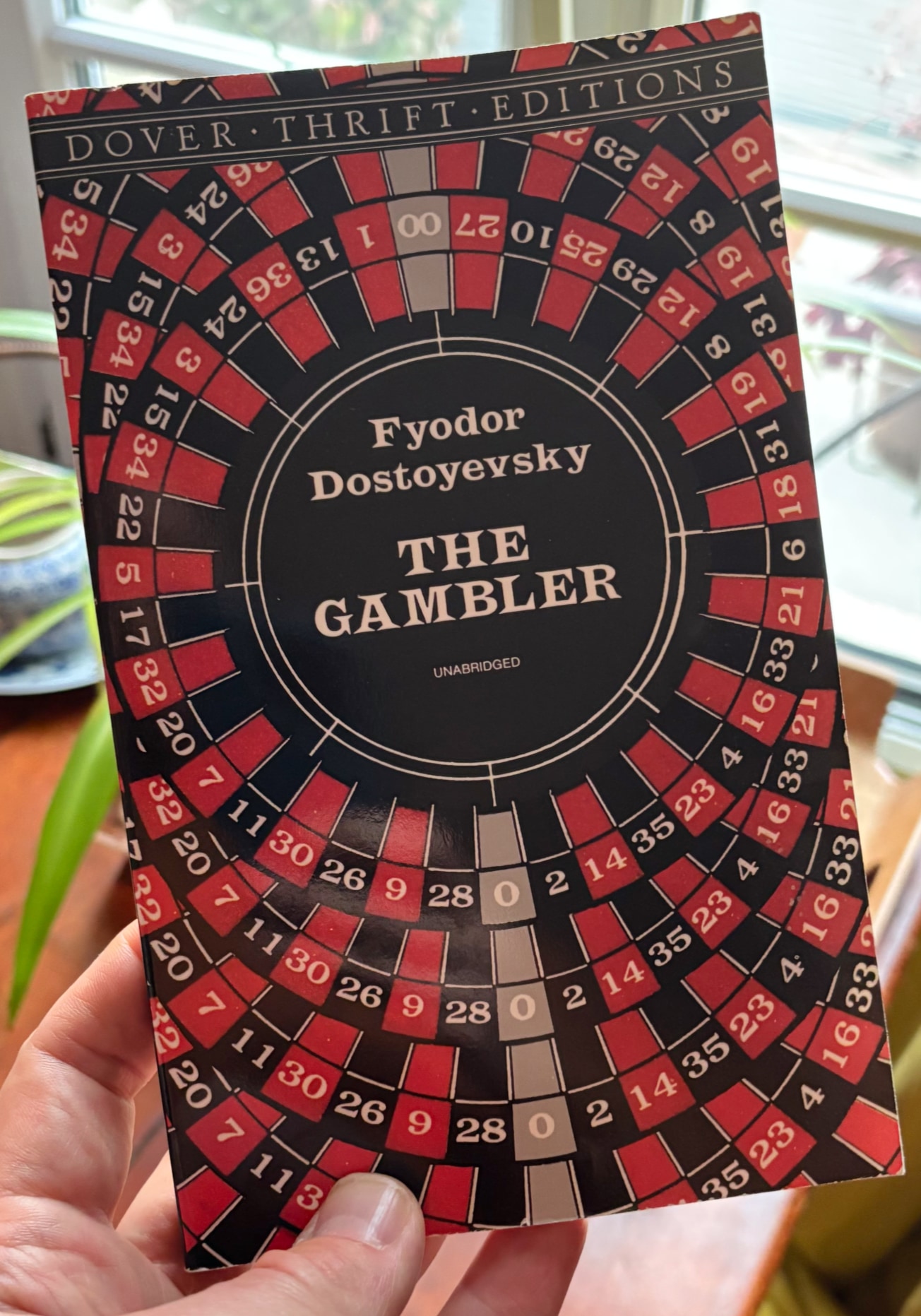Tuesday Book Club: The Gambler
20 May 2025, Filed in: 19th Century Fiction | 19th Century Russia | Psychological Fiction | Book Club | Russian Literature
Risk, Ruin, and the Rush of It All

This week’s Tuesday Book Club takes us to the roulette tables of Europe with The Gambler by Fyodor Dostoyevsky—a short, intense novel written under pressure and pulsing with the thrill (and madness) of taking everything to the edge.
If you’ve ever wondered what obsession sounds like in prose, this might be it.
What’s The Gambler about?
Written in just a few weeks to pay off his own gambling debts, The Gambler is, unsurprisingly, personal. The story follows Alexei Ivanovich, a young tutor for a Russian family in a fictional spa town. He’s entangled in a tangle of bad debts, desperate love, social ambition—and above all, a fixation with the roulette wheel.
The novel captures the excitement, superstition, and desperation of the gambling world, but it also digs deeper. This isn’t just about money—it’s about the psychology of risk, the seduction of chance, and the illusion of control.
Why it’s worth reading
It’s one of Dostoyevsky’s shorter works, but it doesn’t hold back. You feel the breathlessness, the erratic energy, the moments of clarity followed by collapse. It’s as much about addiction and self-destruction as it is about love or money.
And it’s also fascinating for what it reveals about Dostoyevsky himself. He knew this world. He lived it. And he turned it into a story that feels as immediate and messy as real life.
Let’s talk about it
Have you read The Gambler before? Did it feel like a warning, a confession, or something else entirely? And what do you make of Alexei—reckless, tragic, or just honest in ways most of us try to avoid?
Join the conversation with #TuesdayBookClub and #TheGambler on X (formerly Twitter) and Bluesky. Whether you’re reading Dostoyevsky for the first time or coming back to him, we’d love to hear what you think.